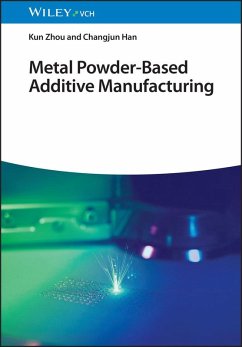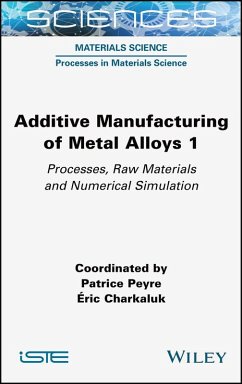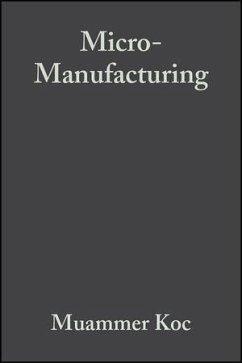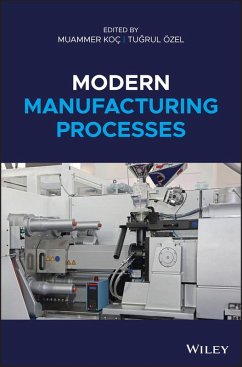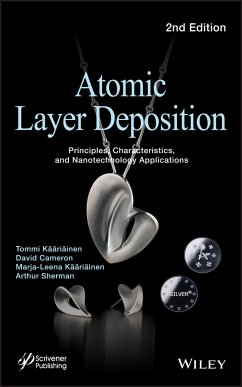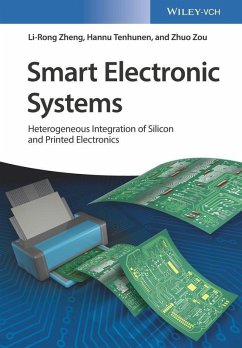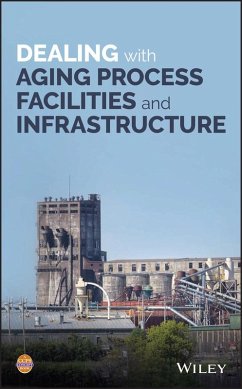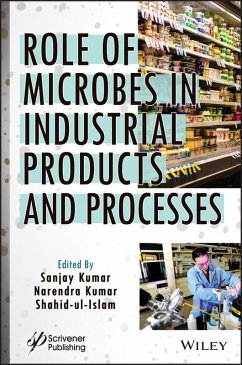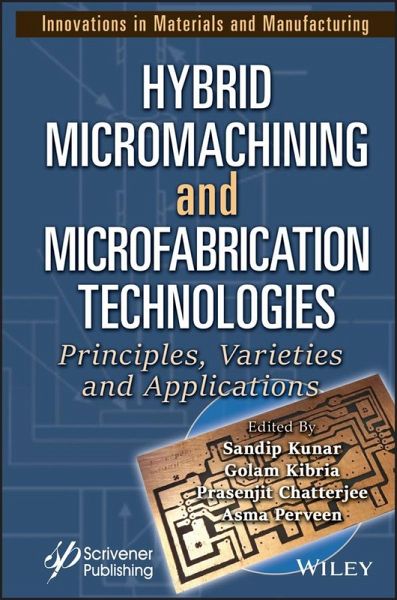
Hybrid Micromachining and Microfabrication Technologies (eBook, ePUB)
Principles, Varieties and Applications
Redaktion: Kunar, Sandip; Perveen, Asma; Chatterjee, Prasenjit; Kibria, Golam
Versandkostenfrei!
Sofort per Download lieferbar
150,99 €
inkl. MwSt.
Weitere Ausgaben:

PAYBACK Punkte
0 °P sammeln!
HYBRID MICROMACHINING and MICROFABRICATION TECHNOLOGIES The book aims to provide a thorough understanding of numerous advanced hybrid micromachining and microfabrication techniques as well as future directions, providing researchers and engineers who work in hybrid micromachining with a much-appreciated orientation. The book is dedicated to advanced hybrid micromachining and microfabrication technologies by detailing principals, techniques, processes, conditions, research advances, research challenges, and opportunities for various types of advanced hybrid micromachining and microfabrication. ...
HYBRID MICROMACHINING and MICROFABRICATION TECHNOLOGIES The book aims to provide a thorough understanding of numerous advanced hybrid micromachining and microfabrication techniques as well as future directions, providing researchers and engineers who work in hybrid micromachining with a much-appreciated orientation. The book is dedicated to advanced hybrid micromachining and microfabrication technologies by detailing principals, techniques, processes, conditions, research advances, research challenges, and opportunities for various types of advanced hybrid micromachining and microfabrication. It discusses the mechanisms of material removal supported by experimental validation. Constructional features of hybrid micromachining setup suitable for industrial micromachining applications are explained. Separate chapters are devoted to different advanced hybrid micromachining and microfabrication to design and development of micro-tools, which is one of the most vital components in advanced hybrid micromachining, and which can also be used for various micro and nano applications. Power supply, and other major factors which influence advanced hybrid micromachining processes, are covered and research findings concerning the improvement of machining accuracy and efficiency are reported.
Dieser Download kann aus rechtlichen Gründen nur mit Rechnungsadresse in A, B, BG, CY, CZ, D, DK, EW, E, FIN, F, GR, HR, H, IRL, I, LT, L, LR, M, NL, PL, P, R, S, SLO, SK ausgeliefert werden.





